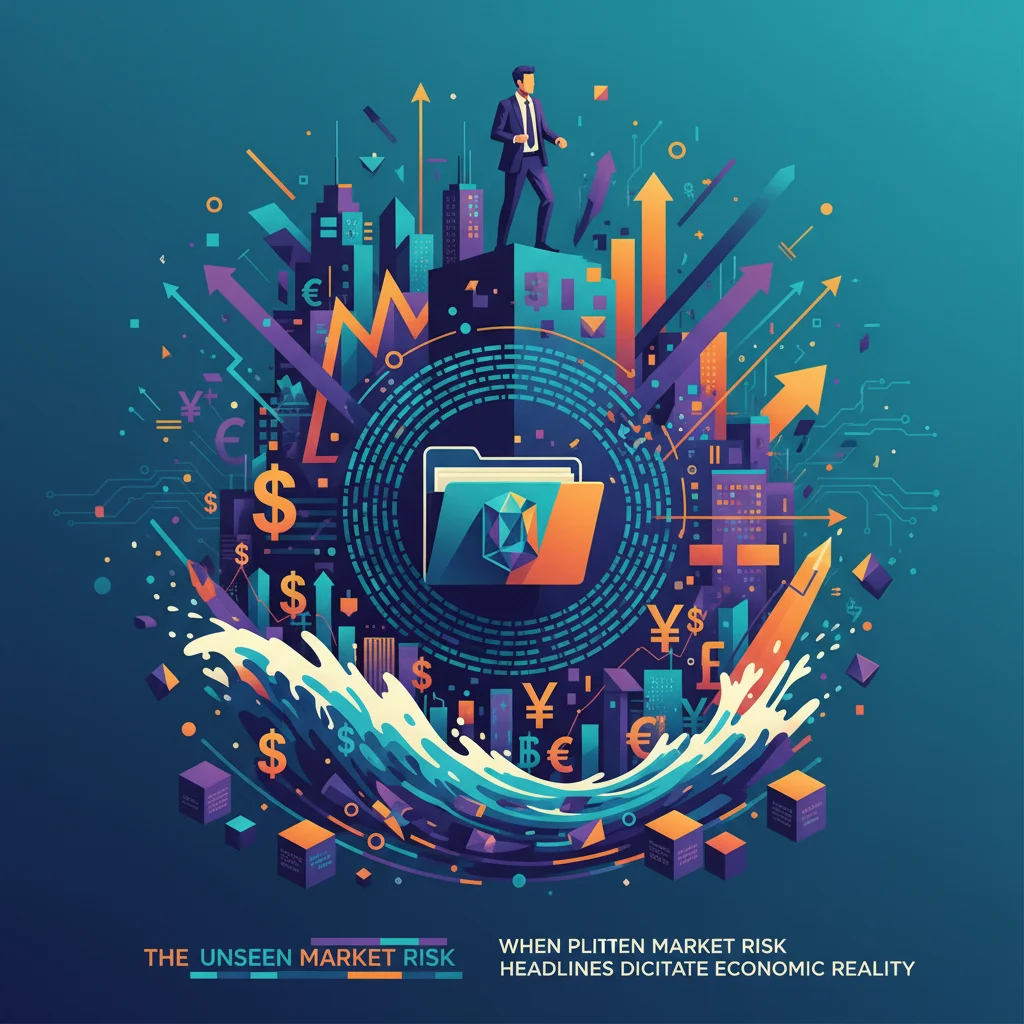
The Epstein Files Gamble: Decoding the Economic Shockwaves of a Political Maneuver
The Unseen Market Risk: When Political Headlines Dictate Economic Reality
In the high-stakes arena where politics and high finance intersect, some stories possess a gravitational pull so immense they warp everything around them. The saga of Jeffrey Epstein is one such phenomenon. Years after his death, the fallout continues to generate tremors, not just in the halls of power, but in the boardrooms and trading floors that dictate the pulse of the global economy. Recently, a bold political maneuver initiated by allies of Donald Trump has brought this saga roaring back into the spotlight, aiming to force the Department of Justice to release its complete file on the disgraced financier. This move, framed as a push for transparency, is a calculated political gamble. But for investors, business leaders, and financial professionals, it’s something more: a potent, real-time case study in how non-financial, reputational risk can metastasize into tangible market volatility.
The core of the issue is a vote, expected to pass the U.S. House of Representatives, that would compel the DOJ to hand over all documents related to Epstein. According to the Financial Times, Trump’s camp is betting he has “nothing to hide,” effectively daring political opponents to oppose a call for transparency. While the political chess match is captivating, the underlying implications for the financial world are profound. The release of these documents could potentially unmask new connections, implicate powerful figures, and cast a harsh light on the institutional systems that enabled Epstein’s vast criminal enterprise. This isn’t just about past crimes; it’s about future stability, trust in institutions, and the unpredictable impact on the stock market.
From Scandal to Balance Sheet: The Financial Contagion of the Epstein Network
To understand why a document release in Washington D.C. should concern an investor in London or a tech CEO in Silicon Valley, one must follow the money. Jeffrey Epstein was not merely a socialite with a dark secret; he was a sophisticated financial operator whose activities were deeply interwoven with the mainstream banking system. The fallout has already cost some of the world’s largest financial institutions billions of dollars and immeasurable reputational damage.
Two colossal names in global finance, JPMorgan Chase and Deutsche Bank, have been forced into massive settlements for their roles in servicing Epstein long after red flags should have halted their relationship. In 2023, JPMorgan agreed to a $290 million settlement with Epstein’s victims, while Deutsche Bank settled a similar lawsuit for $75 million. These figures are not just costs of doing business; they are glaring indicators of systemic failures in corporate governance, risk management, and regulatory compliance. The potential for new documents to reveal further institutional complicity or expose executives at other publicly traded companies is a risk that cannot be easily priced into market models. This creates an “uncertainty premium” that can depress stock values and stifle investment across affected sectors.
The 0 Million Handshake: Inside Goldman Sachs’ Record-Breaking EA Deal
Below is a timeline highlighting the critical financial moments in this ongoing saga, illustrating how the consequences have rippled through the financial industry over many years.
| Date | Event | Financial & Economic Implication |
|---|---|---|
| July 2019 | Jeffrey Epstein is arrested on federal sex trafficking charges. | Intense scrutiny begins on the financial institutions and individuals who enabled his operations, triggering internal reviews across the banking sector. |
| August 2019 | Epstein dies by suicide in custody. | The focus shifts from criminal prosecution of an individual to holding his network and corporate enablers accountable, increasing liability risk for banks and associates. |
| July 2020 | Ghislaine Maxwell is arrested. | Keeps the case in the public eye, ensuring continued pressure on financial partners and raising questions about networks of influence. |
| May 2023 | Deutsche Bank agrees to a $75 million settlement. | A major global bank admits to compliance failures, setting a precedent and highlighting the massive financial risk of servicing high-risk clients. |
| June 2023 | JPMorgan Chase agrees to a $290 million settlement. | One of the largest U.S. banks pays a staggering sum, demonstrating the severe potential cost of reputational and legal fallout from association with toxic individuals. |
| January 2024 | First batch of court documents naming Epstein’s associates is unsealed. | Increases market jitters as investors watch for names connected to public companies, impacting individual stock trading and sector confidence. |
The New Frontier: Fintech, Blockchain, and the Economics of Trust
The Epstein saga, for all its sordid details, has served as a powerful catalyst for change within the financial technology sector. The glaring compliance failures at legacy banks have underscored the urgent need for more sophisticated tools to detect and prevent illicit financial activity. This has accelerated investment and innovation in the field of Regulatory Technology, or “RegTech.” Modern fintech platforms now leverage artificial intelligence and machine learning to analyze billions of transactions in real-time, flagging suspicious patterns that human analysts might miss. The Epstein case is a textbook example of why this technology is no longer a luxury but a necessity for any financial institution hoping to avoid catastrophic legal and reputational damage.
One Vote, Nine Views: Is the Bank of England's Decision-Making Process Flawed?
Looking further ahead, the scandal provokes a fascinating question about the role of emerging technologies like blockchain. At its core, the Epstein network thrived on opacity, using complex corporate structures and the privacy of the traditional banking system to hide its activities. A core promise of blockchain technology is radical transparency. While it’s not a panacea, a future where high-value transactions are recorded on an immutable, distributed ledger could make it exponentially more difficult for such vast criminal enterprises to operate in the shadows. This is a speculative frontier, but it speaks to a powerful market demand for systems that are inherently more trustworthy and transparent.
Ultimately, the enduring lesson from this affair is about the tangible economic cost of eroded trust. When the public loses faith in the integrity of its core institutions—be it government, justice, or banking—it creates a drag on the entire economy. It increases the cost of capital, complicates due diligence, and forces businesses and investors to operate with a higher degree of suspicion. Every transaction carries an invisible tax of mistrust. The forced release of the Epstein files, regardless of its content, will be another test of this institutional trust, with consequences that will be measured not just in headlines, but in market sentiment and investment flows for months to come.
Beyond the Odds: How Financial Technology is Turning Sports Betting into the Next Stock Market
Conclusion: Navigating the Intersection of Power, Politics, and Portfolios
The political maneuver to unseal the DOJ’s Epstein files is far more than a partisan squabble. It is a stark reminder that in our interconnected world, the lines between political theater and economic reality have been irrevocably blurred. For those engaged in finance, investing, and business leadership, it highlights the critical need to expand the definition of risk analysis. Geopolitical and reputational risks, once considered “soft” or secondary factors, are now primary drivers of market behavior.
Whether this specific gamble pays off for its architects is a question for political analysts. But the larger economic implications are already clear. The potential for sudden, scandal-driven volatility is now a permanent feature of the investment landscape. The companies that will thrive are those with robust governance and the advanced financial technology to navigate these treacherous waters. As investors and leaders, our challenge is to look beyond the daily fluctuations of the stock market and understand the deeper, structural forces at play. The Epstein saga is a grim but essential lesson: in today’s economy, secrets have a price, and transparency—whether sought or forced—always comes with a market impact.


